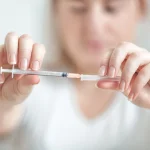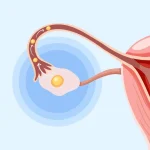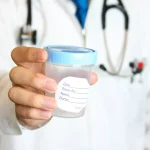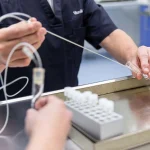How Much Is IVF in Nigeria? Full Cost Breakdown for 2025
When couples begin their fertility journey, one of the first questions that comes up is, “How much is IVF in Nigeria?” In vitro fertilization (IVF) is a remarkable medical procedure that helps couples overcome infertility challenges, but it also entails a significant financial commitment. Understanding the full cost of IVF, including medication, consultation, and laboratory fees, helps couples plan realistically for the process.
In 2025, the average cost of IVF in Nigeria typically ranges between ₦4,000,000 and ₦5,000,000 per cycle, depending on the clinic, the type of IVF treatment, and any additional procedures needed. In some cases, advanced techniques such as genetic testing or donor programs can increase this price.
This guide breaks down everything you need to know about IVF costs in Nigeria, what influences the pricing, and how to make informed decisions when choosing a Fertility Clinic in Nigeria.
Understanding What IVF Is

In vitro fertilization (IVF) is a fertility treatment where eggs are collected from a woman’s ovaries and fertilized with sperm in a laboratory. Once fertilized, the embryos are cultured for a few days before one or more embryos are transferred into the woman’s uterus, where pregnancy may begin.
IVF can help couples with several infertility challenges, including:
- Blocked or damaged fallopian tubes
- Low sperm count or motility issues
- Polycystic ovarian syndrome (PCOS)
- Endometriosis
- Unexplained infertility
The treatment requires precise medical expertise, specialized technology, and hormonal support, all of which contribute to the total cost of IVF.
The Average Cost of IVF in Nigeria
According to 2025 data from several leading fertility centers in Lagos, Abuja, and Port Harcourt, a standard IVF cycle in Nigeria costs between ₦4,000,000 and ₦5,000,000.
This estimate typically includes:
- Consultations and fertility assessments
- Ovarian stimulation medications
- Egg retrieval procedure
- Sperm collection and fertilization in the lab
- Embryo culture and transfer
However, it’s important to note that not all clinics package their services the same way. Some may quote lower base fees but charge separately for medications or laboratory tests. Others provide “all-inclusive” packages that cover most essentials.
Detailed IVF Cost Breakdown
To better understand where your money goes, here’s a closer look at the main components of IVF costs in Nigeria:
1. Initial Consultation and Fertility Tests
Before IVF begins, both partners undergo tests to assess fertility health.
- Consultation fees: ₦50,000 – ₦150,000
- Fertility tests (blood tests, hormone checks, ultrasounds, semen analysis): ₦200,000 – ₦400,000
These tests help doctors design a treatment plan tailored to your unique situation.
2. Ovarian Stimulation and Medication
This is one of the largest cost factors in IVF. Fertility drugs are used to stimulate the ovaries to produce multiple eggs.
- Cost range: ₦1,000,000 – ₦1,500,000
The price varies depending on your body’s response and the type of medications prescribed (imported drugs are often more expensive).
3. Egg Retrieval Procedure
When the eggs are mature, a minor surgical procedure is done under light anesthesia to collect them.
- Cost range: ₦300,000 – ₦600,000
This includes the operating room, anesthesia, and professional fees.
4. Laboratory Fertilization and Embryo Culture
Once the eggs and sperm are collected, fertilization is done in a lab. The embryos are then cultured and monitored for a few days before being selected for transfer.
- Cost range: ₦800,000 – ₦1,200,000
This step includes fertilization, embryo monitoring, and preparation for transfer.
5. Embryo Transfer
The most crucial stage of IVF involves transferring one or more embryos into the uterus.
- Cost range: ₦300,000 – ₦500,000
It’s a short, non-surgical procedure usually done under ultrasound guidance.
6. Additional IVF Procedures (Optional)
Depending on your fertility diagnosis, some cases may require add-on treatments that increase the total cost:
| Additional Procedure | Description | Estimated Cost (₦) |
| ICSI (Intracytoplasmic Sperm Injection) | Used when sperm quality is low; a single sperm is injected into an egg | ₦500,000 – ₦1,000,000 |
| PGT/PGS (Genetic Testing) | Screens embryos for genetic abnormalities before transfer | ₦800,000 – ₦1,500,000 |
| Frozen Embryo Transfer (FET) | Transfers embryos from a previous cycle | ₦1,000,000 – ₦1,500,000 |
| Donor Eggs or Sperm | Used when one partner’s gametes are unavailable or unhealthy | ₦1,500,000 – ₦2,500,000 |
| Embryo Freezing and Storage | Preserves unused embryos for future use | ₦300,000 – ₦600,000 per year |
Factors That Influence IVF Cost in Nigeria

While the general price range gives you a good estimate, the actual cost can vary significantly depending on the following factors:
1. Clinic Reputation and Location
High-end fertility centers in Lagos and Abuja may charge more due to better infrastructure and advanced laboratory technology. Smaller or newer clinics may offer more affordable options, but with varying success rates.
2. Patient Age and Fertility Condition
Older women (over 38) or those with low ovarian reserve may need higher doses of medication or multiple cycles, which increases total cost.
3. Type of IVF Procedure
Conventional IVF is cheaper than advanced versions like ICSI or donor-assisted IVF. Couples with male-factor infertility or genetic concerns often pay more for additional lab techniques.
4. Use of Donor Eggs or Sperm
Using donor materials involves screening and compensation for donors, adding to the final price.
5. Medication Costs
Because many fertility drugs are imported, fluctuations in exchange rates can affect local prices.
6. Number of IVF Cycles
Most couples require more than one cycle for success. The average success rate of IVF in Nigeria is around 40–50% per cycle, so budgeting for at least two attempts is often realistic.
Comparing IVF Costs Across Major Nigerian Cities
| City | Average Cost per Cycle (₦) | Notes |
| Lagos | 4,500,000 – 5,000,000 | Premium clinics, advanced labs |
| Abuja | 4,000,000 – 4,800,000 | Wide range of reputable centers |
| Port Harcourt | 3,800,000 – 4,500,000 | Slightly lower operational costs |
| Ibadan | 3,500,000 – 4,200,000 | Fewer specialized clinics, but growing |
| Enugu / Kaduna | 3,000,000 – 4,000,000 | Lower overall cost, limited access |
The variation mainly depends on infrastructure, lab technology, and medical expertise.
Is IVF Covered by Health Insurance in Nigeria?
Unfortunately, most Nigerian health insurance plans do not cover IVF or fertility treatments. Couples are expected to pay out of pocket.
However, some fertility clinics now offer:
- Flexible payment plans (spread across several months)
- Promotional packages that combine testing and treatment
- Discounted rates for multiple cycles or referrals
Always ask about available financing options before starting your treatment.
Tips to Manage IVF Costs
IVF can be expensive, but there are smart ways to plan for it without unnecessary financial stress.
- Get multiple quotes: Compare at least three fertility clinics to understand cost variations.
- Ask for a full cost breakdown: Avoid hidden fees by requesting an itemized estimate.
- Inquire about package deals: Some clinics offer bundled IVF plans that include medications and scans.
- Consider saving in advance: Create a fertility fund or explore family support options.
- Choose a reputable clinic: Success on the first or second cycle can save you money in the long run.
What to Expect After Paying for IVF
Once you begin your IVF cycle, the clinic will guide you through:
- Initial testing and stimulation phase (2–3 weeks)
- Egg retrieval and fertilization
- Embryo transfer
- Pregnancy testing two weeks later
Each step is carefully timed, and your fertility doctor will monitor your progress through scans and blood work.
Is IVF Worth the Cost?
For many couples struggling with infertility, IVF offers the best chance of conceiving when other treatments have failed. The process may be emotionally and financially demanding, but for those who achieve a successful pregnancy, the outcome is priceless.
Moreover, advancements in reproductive medicine are improving IVF success rates in Nigeria each year, making the investment more worthwhile than ever.
Final Thoughts
The cost of IVF in Nigeria may seem high at first glance, but understanding what’s included helps you make an informed decision. On average, couples can expect to spend ₦4,000,000 to ₦5,000,000 per cycle, depending on their specific treatment plan and chosen clinic.
While the price can vary, the value lies in expert care, advanced technology, and the hope of starting or growing your family. By choosing a trusted fertility clinic and planning ahead, you can begin your IVF journey with confidence.
At The Bridge Clinic, we provide world-class IVF services in Nigeria with transparent pricing, cutting-edge technology, and compassionate care. Our fertility specialists work closely with you to design a treatment plan that fits your medical and financial needs.
Reach out to The Bridge Clinic today to schedule a consultation and learn more about our affordable IVF packages designed to help you achieve your dream of parenthood.
Follow us on our social media channels below:
Explore our related articles below:








